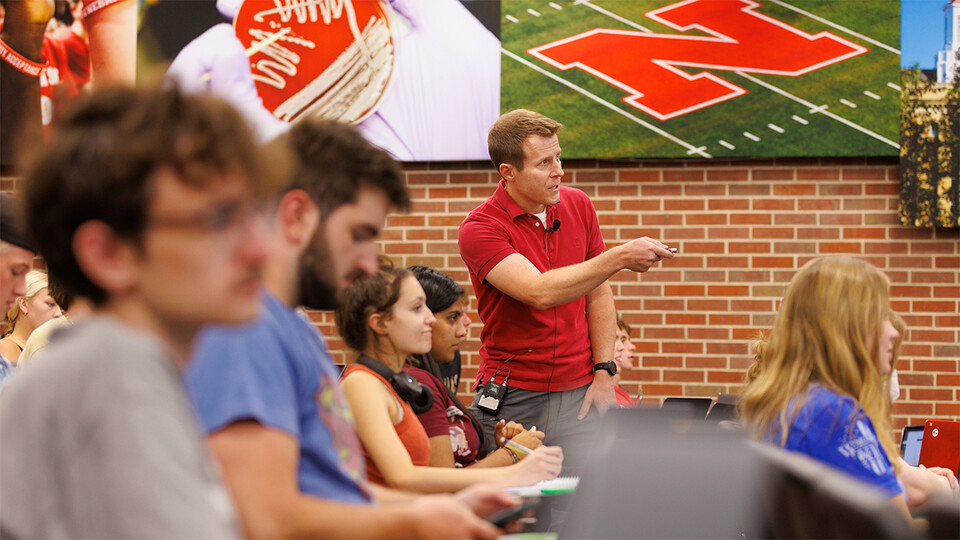
Innovation dissemination
Though much research has shown that interactive, student-centric approaches to teaching outperform lecturing in terms of helping students learn, the latter still dominates many STEM classrooms. In 2020, a team that included Brian Couch, associate professor of biological sciences, found that faculty who employ innovative, evidence-based teaching practices tend to share those strategies mostly among themselves — limiting their dissemination among the faculty who continue to rely on lecturing.
In a recent study published by the International Journal of STEM Education, Couch and colleagues present insights from interviews with 19 STEM faculty known for their innovative instructional practices. During those interviews, faculty reported that the colleagues they consider core members of their personal networks influence their teaching practices more than do their distant contacts. And they detailed certain factors, such as co-teaching courses and working from nearby offices, that help promote conversations with those closer colleagues. The study also revealed that the faculty talk with their peers more about student engagement and expectations than about learning outcomes.
To stimulate discussions across more faculty, the team proposed that STEM departments cultivate new teaching relationships by presenting more opportunities and incentives for faculty to share practices beyond their core networks. That’s especially important, the researchers asserted, given that many of the interviewed faculty said they seek teaching help only from peers they know to have relevant expertise. Departments that encourage faculty to share teaching approaches during meetings, and even observe their peers teaching classes, could see greater dissemination of student-focused, data-backed practices, the team said.
To read more Research Roundup go to: https://news.unl.edu/newsrooms/today/article/research-roundup-oct-25/